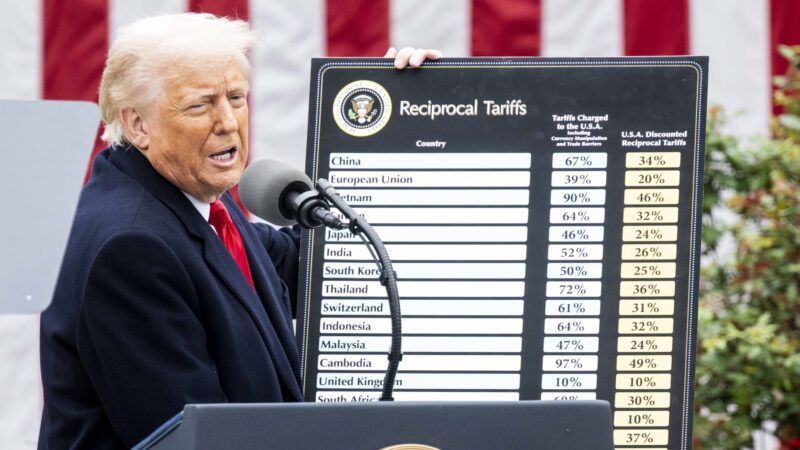The Trump Administration Finally Admits That Tariffs Raise Prices
If lowering tariffs makes things cheaper, why stop at coffee?

The Trump administration has, at long last and in a small way, admitted that tariffs raise prices.
The White House is finalizing plans to lower tariffs on coffee, beef, fruit, and other imports from several countries amid rising grocery prices and mounting political pressure. That includes four new "framework" trade deals that the Trump administration announced Thursday with countries in Central and South America, and more reductions could be on the way. The administration is planning to lower tariffs on "products coming from countries that have not struck trade deals with the administration," The New York Times reported on Thursday, though the paper cautioned that the president had yet to make any final decisions.
Officially, the White House is framing the tariff reductions as part of hastily assembled deals with Argentina, Ecuador, El Salvador, and Guatemala. Citing an unnamed administration official, Axios says the deals are focused on providing "relief on some products not grown domestically," including coffee and bananas.
Both President Donald Trump and Treasury Secretary Scott Bessent indicated earlier this week that tariff reductions could be coming—the most direct indication yet that the White House is confronting the reality of the president's tariffs, which have been a massive tax increase on American consumers.
"We're going to lower some tariffs; we're going to have some coffee come in," Trump told Fox News' Laura Ingraham earlier this week.
"You're going to see some substantial announcement over the next couple of days in terms of things we don't grow here in the United States, coffee being one of them," Bessent said in an interview with Fox News on Wednesday. "Bananas, other fruits, things like that. So that will bring the prices down very quickly."
Coffee, in particular, has become a political problem for the administration. Americans drink a lot of coffee, but very little of it is actually grown here. Hawaii produced about 4.2 million tons of coffee last year, but Americans consumed about 800 times that amount.
That means imports are essential, and those imports have gotten more expensive thanks to Trump's tariffs. In response, coffee prices have spiked by nearly 19 percent over the past 12 months, according to the September edition of the federal government's Consumer Price Index, which tracks inflation.
The moves announced Thursday may help make coffee more affordable, but this is ultimately less than a half-measure. As Axios notes, those four countries account for just 7 percent of U.S. coffee imports. Most coffee (and many other items) will still face higher tariffs. Trump's tariffs are estimated to cost the average American household around $1,800 this year—so some small relief on grocery prices might be appreciated, but that is hardly solving the problem the White House has created.
Still, let's give some credit where it is due. The Trump administration has discovered a basic principle of economics: Tariffs raise prices.
Someone in the White House should now be pondering the implications of this lesson: If reducing tariffs provides relief to consumers who eat bananas and drink coffee, what would removing other tariffs do for American manufacturing? After all, more than half of all imports are raw materials and intermediate goods used to make things. If lowering some tariffs is good, then lowering more tariffs would be better!
Even so, a limited, begrudging retreat from a foolish, expensive policy is still a step in the right direction. Let's have more of that, please.
